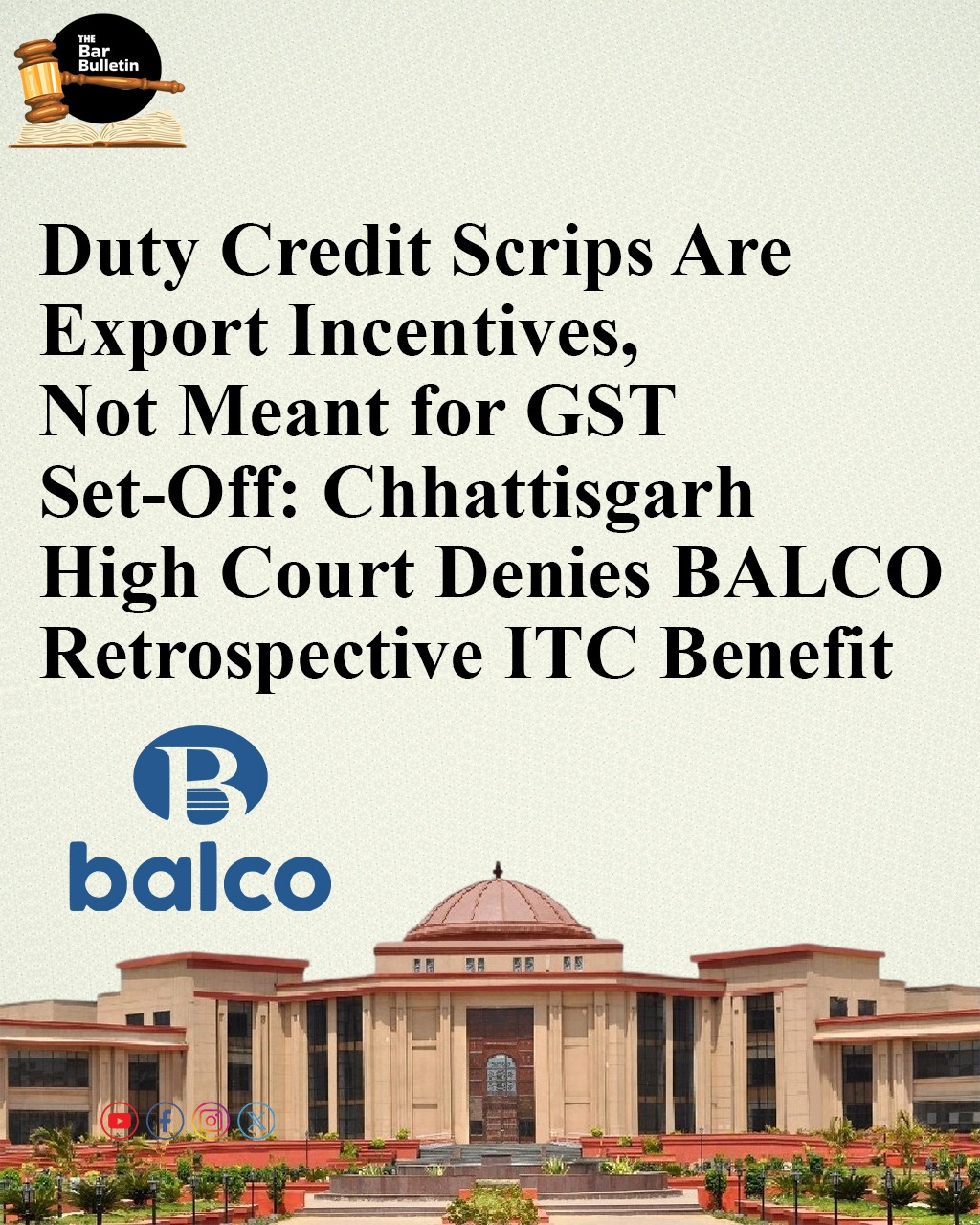The Chhattisgarh High Court ruled that Duty Credit Scrips (DCS) are an incentive given to exporters for promoting exports and can be used for setting off Customs Duty, but cannot be used for setting off GST. The Court noted that since DCS is considered as ‘goods’ with HSN 4907 and its supply is exempted from GST, the exemption has been granted by Notification No.35/2017 issued in exercise of the power conferred under Section 11 of the CGST Act.
A Single Judge Bench of Justice Sanjay K Agrawal observed that by an amendment dated July 05, 2022, sale of DCS was excluded from ‘aggregate value of exempt supply’ for the purpose of Rule 42, and therefore, after the amendment, the ITC is available to the BALCO Plant (Petitioner) even on supply of DCS, despite being an ‘exempt supply’, which the petitioner is claiming that the amendment be declared clarificatory and be given retrospective effect so that the petitioner can enjoy the benefit of ITC on sale of DCS from the date of enactment of the CGST Act.
Since it was not expressly mentioned in Notification No.14/2022 dated July 05, 2022 that Rule 43 of the CGST Rules adding Explanation 1(d) would have the retrospective effect, the Bench clarified that clause (d) was enacted and inserted in Explanation 1 to Rule 43 of the CGST Rules based on the representations and recommendation made by the GST Council, and the said insertion has only expanded the scope of supplies which have to be excluded from the aggregate value of exempt supplies. The Bench added that though express power in Section 164(3) of the CGST Act has been conferred upon the rule-making authority, yet the rule-making authority did not choose to promulgate it with retrospective effect, and ITC, being not a substantive right of the dealer, it is only a nature of benefit or concession extended to the dealer under the statutory scheme.
Briefly, the competent authority by its rectification order, held that the electricity generated by the petitioner to the extent of 1388641 KWH units has been supplied for township consumption as evident from Form G, and as such, ITC of Compensation cess paid on coal attributable to 540 MW Power Plant is liable to be reversed under Rule 42 of the CGST Rules. This led to non-entitlement of the Petitioner for Input Tax Credit (ITC) to the electrical energy consumed for the maintenance of its township. Hence, the Petitioner, who uses coal as a raw material for the production of electricity, which is in turn used for the production of Aluminium Products and supplied to their township, had knocked the door of the High Court, raising questions as to whether the maintenance of township and supply of electricity thereof is in the course or furtherance of business in terms of Section 2(17) read with Section 16 of the CGST Act and it amounts to business activity to entitle the petitioner for the ITC.
These queries came to be analysed by the High Court, and the Single Judge observed that the ITC is a form of benefit or concession extended to the dealer under the statutory scheme, which can be received by the beneficiary only as per the scheme of the statute subject to fulfilment of the conditions laid down in Section 16(4) of the CGST Act, and therefore, it cannot be claimed as a matter of substantive right by the dealer.
The Court therefore concluded that the amendment made in the explanation in the shape of Rule 43, Explanation (1)(d), of the CGST Rules, is not clarificatory, and hence, the benefit of the said amendment would be available to the Petitioner for the period after July 05, 2022, and therefore dismissed the petition in favour of the GST Department.



